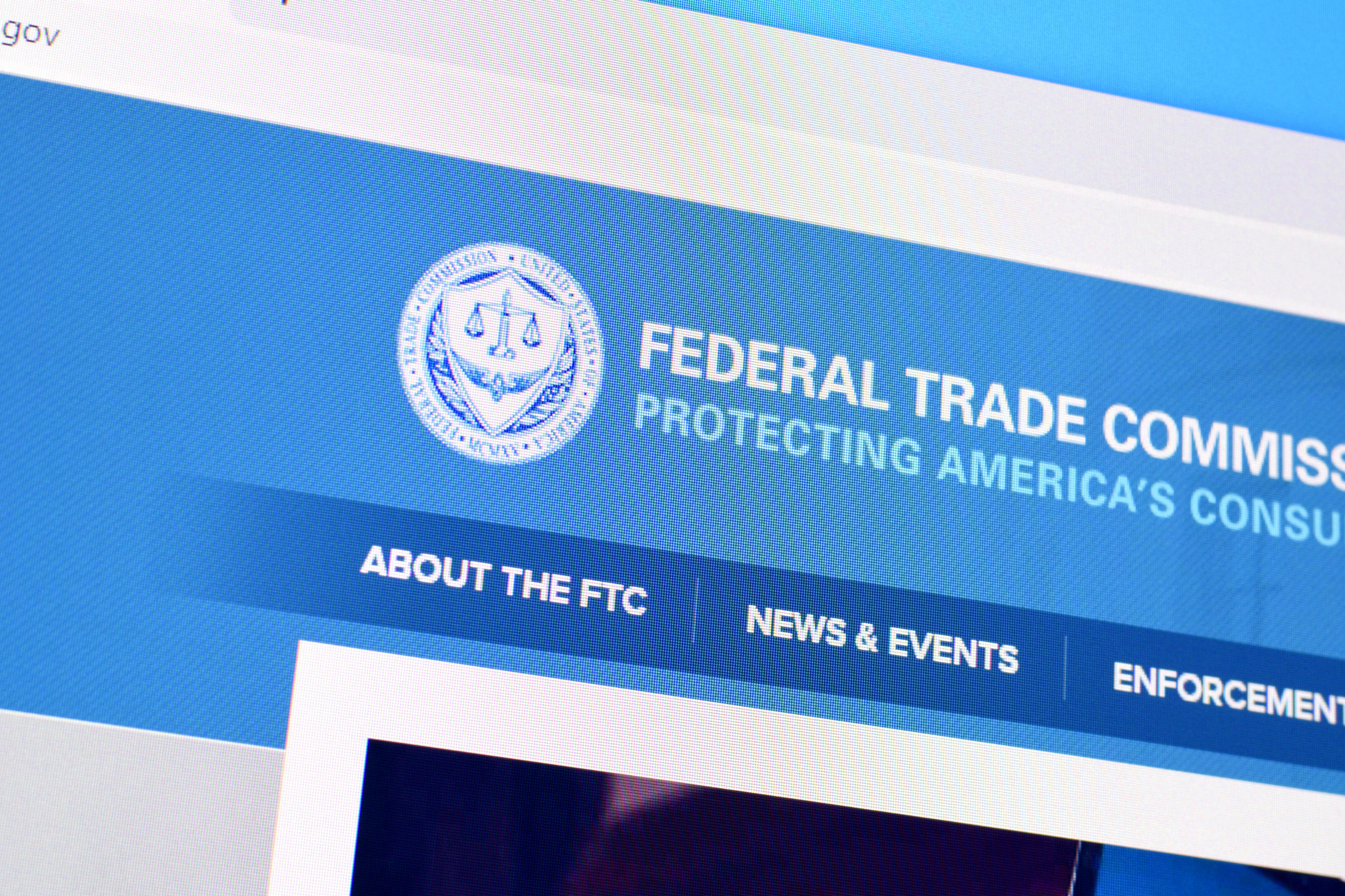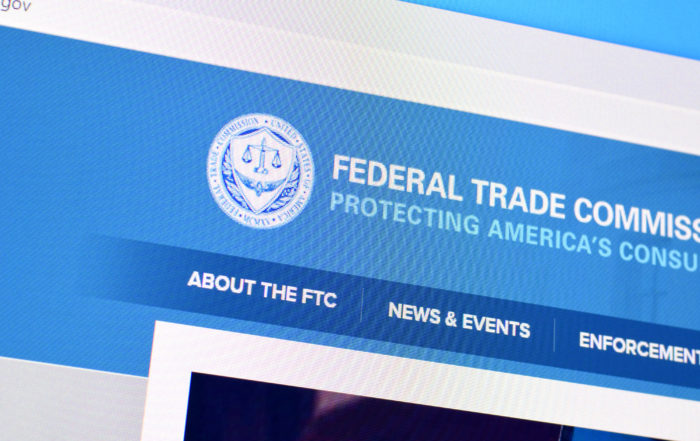
Businesses Beware: FTC Seeks to Codify “Made in USA” Enforcement Policy
By Theodora McCormick, Jack Wenik, and Robert Lufrano
Introduction
The COVID-19 pandemic has put unprecedented pressure on global supply chains, causing American policymakers and companies to rethink the benefits of globalization and consider bringing more manufacturing back to the United States. While not announced in direct response to the pandemic, a new rule proposed by the Federal Trade Commission (FTC) would both reward those American companies that manufacture their products in the United States and incentivize more companies to bring manufacturing and production back home. The proposed rule would do so by expanding the FTC’s enforcement authority and its ability to seek civil penalties against companies that make false or deceptive “Made in the USA” (MUSA) claims.[1]
There is some debate regarding whether the proposed rule would simply codify a standard that has already been established by the FTC’s past enforcement history, or whether it expands the FTC’s authority to regulate MUSA claims. Of course, there is always the possibility that the proposed rule may not be adopted at all or that it may be modified before being finalized. In its current form, however, the proposed rule—if adopted—would broaden the scope of the FTC’s statutory enforcement authority to include both offline and online MUSA claims and would provide the FTC with the important and powerful tool of civil monetary penalties, which may lead to more frequent enforcement.
The Proposed Rule
Section 323.2 of the proposed rule contains a section entitled “[p]rohibited acts,” which reads as follows: “[i]n connection with promoting or offering for sale any good or service, in or affecting commerce, as ‘commerce’ is defined in the Federal Trade Commission Act, it is an unfair or deceptive act or practice within the meaning of section 5 of that Act to label any product as Made in the United States unless the final assembly or processing of the product occurs in the United States, all significant processing that goes into the product occurs in the United States, and all or virtually all ingredients or components of the product are made and sourced in the United States.”[2] The proposed rule also provides that “[t]o the extent that any mail order catalog or mail order promotional material includes a seal, mark, tag, or stamp labeling a product Made in the United States, such label must comply with § 323.2 of this part.”[3] “Mail order catalog” and “mail order promotional material” are defined to include any materials “used in the direct sale or direct offering for sale of any product or service, that are disseminated in print or by electronic means, and that solicit the purchase” of such products or services.[4] If the proposed rule is adopted, the FTC will be able to seek civil penalties from violators of up to $43,280 per violation.[5]
The FTC’s Statutory Authority and Past Enforcement Related to MUSA Claims
In order to understand why there is some debate over the scope of the proposed rule, a brief overview of the FTC’s statutory authority and past enforcement history related to MUSA claims is helpful.
Section 5a of the FTC Act[6] requires that businesses selling products with MUSA labels must ensure that the labeling of the product is consistent with the FTC’s prior enforcement decisions under Section 5(a),[7] which prohibits “[u]nfair methods of competition in or affecting commerce, and unfair or deceptive acts or practices in or affecting commerce.” The FTC alone is empowered to develop an enforcement policy best calculated to achieve the ends contemplated by Congress and to allocate its available funds and personnel to execute that policy efficiently and economically.[8] The FTC has historically been given broad discretion to interpret and carry out Congress’s mandate with respect to false and deceptive MUSA claims.[9]
Although the FTC has never promulgated a formal rule concerning its interpretation of its Section 5a authority, it has—for over twenty years—considered advertising within the ambit of its enforcement capabilities when it comes to MUSA labeling. In its 1997 “Enforcement Policy Statement on U.S. Origin Claims,” the FTC stated that it was “issuing this statement to provide guidance regarding its enforcement policy with respect to the use of ‘Made in USA’ and other U.S. origin claims in advertising and labeling.”[10] The FTC was clear that “[t]he principles set forth in this enforcement policy statement apply to U.S. origin claims included in labeling, advertising, other promotional materials, and all other forms of marketing, including marketing through digital or electronic means such as the Internet or electronic mail.”[11]
In guidance that the FTC has published for businesses on how to comply with its existing enforcement policy, the FTC indicated that MUSA claims may take the form of express claims (e.g., “Our products are American-made”) or implied claims, and that when reviewing implied claims, the FTC focuses on the overall impression of the advertising, label, or promotional material.[12]
A review of FTC’s policy toward false and deceptive U.S.-origin claims indicates that the FTC has recently exercised enforcement authority over advertisements as well as labels, despite the fact that this policy has never been codified. Several recent enforcement actions, all of which pre-date the FTC’s proposed rule, confirm that the FTC views its enforcement authority over MUSA claims to include both advertising and labeling.
For example, in 2013, the FTC initiated an enforcement action against E.K. Ekcessories, Inc., based on the company’s marketing of iPhone accessories, bottle holders, lens cleaners, dog collars, leashes, and other outdoor accessories as having been “Made in the U.S.A.”[13] “In addition to the labels, the company advertised its products’ purported U.S. pedigree with statements like ‘For 28 years E.K. Ekcessories has been producing superior quality made accessories in our 60,000 sq. ft. facility in Logan, Utah,’ and ‘Our source of pride and satisfaction abounds from a true ‘Made in USA’ product.”[14] FTC’s action against E.K. Ekcessories was not limited to deceptive labeling, but included allegedly deceptive advertising.
Likewise, in 2019, the FTC entered into two consent orders with companies that it charged with making false and deceptive MUSA claims in online advertisements.[15] The first was with Patriot Puck, a company that marketed hockey pucks to consumers online with claims that the pucks were made entirely in the United States.[16] Attached to the FTC’s complaint against Patriot Puck were examples of the company’s online advertisements, which variously claimed that the pucks were “Made in America” and “100% Made in the USA!”[17] The second consent order was with Sandpiper of California, Inc. and PiperGear USA, Inc., which involved advertisements that the companies’ backpacks and travel products were “American Made” when they were actually made in other countries or imported as finished goods.[18] The consent orders prohibit these companies “from making unqualified U.S.-origin claims for their products, unless they can show that the products’ final assembly or processing—and all significant processing—takes place in the United States, and that all or virtually all ingredients or components of the product are made and sourced in the United States.”[19] Any “qualified made in USA claim must include a clear and conspicuous disclosure about the extent to which the product contains foreign parts, ingredients, and/or processing.”[20]
More recently, in March of this year, Williams-Sonoma, Inc. entered into a settlement with the FTC after the FTC charged the home and kitchen goods company with representing that certain products were made entirely in the United States when they were actually made in China.[21] The Williams-Sonoma consent order includes substantially the same requirements as those found in the Patriot Puck, Sandpiper, and PiperGear consent orders, except that Williams Sonoma also agreed to pay the FTC $1 million.[22]
Notably, all of the foregoing FTC enforcement actions—which explicitly dealt with both labeling and advertising deception on the part of businesses—were brought pursuant to the FTC’s existing 1997 FTC enforcement policy.[23]
Labeling vs. Advertising
Despite the fact that the FTC has historically viewed its own enforcement authority as extending to both labeling and advertising, two FTC Commissioners objected to publication of the proposed rule as written (three supported it) on the grounds that it impermissibly extends FTC’s enforcement authority.
One of the dissenting Commissioners, Christine S. Wilson, wrote that, while she recognized that the COVID-19 pandemic had demonstrated “the fragility of global supply chains,” she could not support the proposed rule because the text covers not only labels but all advertising, including online advertising. Commissioner Wilson emphasized that any proposed rule under Section 5a “must observe the boundaries of our statutory authority.”[24]
Commissioner Rohit Chopra disagreed with Commissioner Wilson’s characterization, taking the position that the proposed rule will not cover all MUSA advertising.[25] Commissioner Chopra indicated that, while he would have preferred a broader prohibition on MUSA fraud, he nevertheless believes that the proposed rule strikes a reasonable compromise, targeting MUSA labeling both online and offline and is consistent with FTC’s statutory authority.[26]
Like Commissioner Wilson, Commissioner Chopra also cited the consequences of the ongoing COVID-19 pandemic in his reasoning, noting that the proposed rule was particularly timely given the shortages and disruptions faced by American families and health care workers seeking critical supplies, including personal protective equipment during the pandemic.[27] Commissioner Chopra also noted that American companies and policymakers were rethinking the wisdom of global supply chains that lack resilience and that American companies and workers should feel confident that if they bring production back to the United States, they will be rewarded in the marketplace.[28]
The Commissioners’ disagreement hinges on the scope of the FTC’s rulemaking authority as delegated to the agency by Congress in Section 5a of the FTC Act. According to the FTC’s recent announcement about the proposed rule, “the Commission has not exercised its rulemaking authority” under Section 5a to date.[29] In its announcement, the FTC stated that it was proposing the rule in order to codify existing standards applicable to MUSA claims and to provide more certainty to marketers and companies.[30] The FTC also stated that the objective of the proposed rule is to prevent deceptive MUSA claims on product labels. However, the text of the proposed rule encompasses not only U.S.-origin claims on labels but also in virtually all forms of advertising.[31] The FTC explains this apparent disconnect between the limited purpose of the proposed rule and the broader actual text by describing advertisements themselves as “labels.”[32]
MUSA Best Practices
In light of the foregoing, it is possible that if the proposed rule is adopted, the FTC—relying on a newly-codified regulation making its authority to pursue false and deceptive MUSA claim in both labeling and advertising express—will become more aggressive in its enforcement efforts related to such claims. While the FTC has not been shy about pursuing both labeling and advertising under its own internal guidance, having explicit regulatory authority to do so could result in a ramping-up of the FTC’s enforcement efforts related to false and deceptive MUSA claims of all types.
As already noted, if the rule is adopted, the FTC will be able to seek civil penalties of up to $43,280 per violation.[33] As Commissioner Chopra warned, “would-be violators . . . abuse the Made in USA label at their peril [and] [t]hese penalties can also be leverage to seek more relief for consumers including redress, disgorgement, and even damages.”[34] The availability of civil monetary penalties is particularly significant, given the Supreme Court’s recent decision in Liu v. SEC[35] and its more recent decision to hear the appeals in two cases involving the FTC—AMG Capital Mgmt., LLC v. FTC and FTC v. Credit Bureau Center, LLC[36]—which call into question the overall scope of the FTC’s enforcement authority. If the Supreme Court follows its decision in Liu, it is likely that the FTC’s ability to seek equitable disgorgement of a company’s profits and restitution as forms of consumer redress will be either eliminated or severely curtailed, making the availability of civil monetary penalties even more important.
Given the current political climate and the emphasis on bringing manufacturing back to the United States, as well as the FTC’s past enforcement history involving MUSA claims, businesses should err on the side of the caution when making U.S.-origin claims. The recent consent decrees between the FTC and various companies described above can serve as a useful blueprint for safely making MUSA claims. Companies should make unqualified claims only when absolutely warranted and make any qualified claims with an eye towards full disclosure of the extent to which a particular product is not made in the United States.
[1] Made in USA Labeling Rule, 85 Fed. Reg. 43162–43165 (July 16, 2020) (to be codified at 16 C.F.R. pt. 323) (complete text of the proposed rule available at https://www.govinfo.gov/content/pkg/FR-2020-07-16/pdf/2020-13902.pdf).
[2] Id. at 43165.
[3] Id.
[4] Id.
[5] See Rohit Chopra, Statement Regarding the Notice of Proposed Rulemaking on Made in USA at 1 (June 22, 2020) (available at https://www.ftc.gov/system/files/documents/public_statements/1577107/p074204musachoprastatementrev.pdf). See also Federal Trade Commission Press Release, FTC Publishes Inflation-Adjusted Civil Penalty Amounts (Jan. 13, 2020) (available at https://www.ftc.gov/news-events/press-releases/2020/01/ftc-publishes-inflation-adjusted-civil-penalty-amounts).
[6] 15 U.S.C. § 45a.
[7] 15 U.S.C. § 45.
[8] See Moog Industries v. Federal Trade Commission, 355 U.S. 411, 413 (1958).
[9] See generally Chevron, U.S.A., Inc. v. Natural Resources Defense Council, Inc., 467 U.S. 837 (1984); City of Arlington, Tex. v. F.C.C., 569 U.S. 290, 296 (2013) (Scalia, J.) (“Statutory ambiguities will be resolved, within the bounds of reasonable interpretation, not by the courts but by the administering agency.”).
[10] Federal Trade Commission, Enforcement Policy Statement of U.S. Origin Claims (Dec. 1, 1997) (emphasis added) (available at https://www.ftc.gov/public-statements/1997/12/enforcement-policy-statement-us-origin-claims).
[11] Id.
[12] Federal Trade Commission, Complying with the Made in USA Standard at 2–3 (1998) (available at https://www.ftc.gov/system/files/documents/plain-language/bus03-complying-made-usa-standard.pdf).
[13] Federal Trade Commission Press Release, FTC Approves Final Consent Settling Charges that Marketer of Outdoor Accessories Made False Made-in-the-USA Claims (Dec. 11, 2013) (available at https://www.ftc.gov/news-events/press-releases/2013/12/ftc-approves-final-consent-settling-charges-marketer-outdoor).
[14] Lesley Fair, Made in USA? Avoiding a Yankee Doodle Don’t (Oct. 21, 2013) (emphasis added) (available at https://www.ftc.gov/news-events/blogs/business-blog/2013/10/made-usa-avoiding-yankee-doodle-dont).
[15] Federal Trade Commission Press Release, FTC Approves Final Consents Settling Charges that Hockey Puck Seller, Companies Selling Recreational and Outdoor Equipment Made False ‘Made in USA’ Claims (Apr. 17, 2019) (available at https://www.ftc.gov/news-events/press-releases/2019/04/ftc-approves-final-consents-settling-charges-hockey-puck-seller).
[16] Federal Trade Commission Press Release, Hockey Puck Seller, Companies Selling Recreational and Outdoor Equipment Agree to Stop Making False ‘Made in USA’ Claims in Separate Actions (Sept. 12, 2018) (available at https://www.ftc.gov/news-events/press-releases/2018/09/hockey-puck-seller-companies-selling-recreational-outdoor).
[17] Id.
[18] Id.
[19] See FTC Approves Final Consents, supra note 15.
[20] Id.
[21] Federal Trade Commission Press Release, Williams-Sonoma, Inc. Settles with FTC, Agrees to Stop Making Overly Broad and Misleading ‘Made in USA’ Claims about Houseware and Furniture Products (Mar. 30, 2020) (available at https://www.ftc.gov/news-events/press-releases/2020/03/williams-sonoma-inc-settles-ftc-agrees-stop-making-overly-broad).
[22] Id.
[23] Id.
[24] Christine S. Wilson, Statement Concurring in Part and Dissenting in Part, Notice of Proposed Rulemaking related to Made in U.S.A. Claims at 1–2 (June 22, 2020) (available at https://www.ftc.gov/system/files/documents/public_statements/1577099/p074204musawilsonstatementrev.pdf).
[25] Chopra, supra note 5, at 1.
[26] Id.
[27] Id. at 2.
[28] Id.
[29] 85 Fed. Reg. at 43162.
[30] Id. at 43164.
[31] Id.
[32] Id. at 43163.
[33] Id. at 1.
[34] Id. (citing 15 U.S.C. § 57b (authorizing the FTC to seek “rescission or reformation of contracts, the refund of money or return of property, the payment of damages, and public notification”)).
[35] 140 S. Ct. 1936 (2020).
[36] AMG Capital Mgmt., LLC v. FTC, 910 F.3d 417 (9th Cir. 2018), cert. granted, No. 19-508, — S. Ct. —-, 2020 WL 3865250 (July 9, 2020); FTC v. Credit Bureau Center, LLC, 937 F.3d 764 (7th Cir. 2019), cert. granted, No. 19-825, — S. Ct. —-, 2020 WL 3865251 (July 9, 2020).
Update Magazine
Fall 2020


 JACK WENIK is a member of the firm in the Health Care and Life Sciences and Litigation practices, in the Newark office of Epstein Becker Green, and serves on the firm’s National Health Care and Life Sciences Steering Committee.
JACK WENIK is a member of the firm in the Health Care and Life Sciences and Litigation practices, in the Newark office of Epstein Becker Green, and serves on the firm’s National Health Care and Life Sciences Steering Committee. ROBERT LUFRANO is an associate in the Litigation & Business Disputes practice, in the Princeton office of Epstein Becker Green. He represents clients in complex commercial litigations and alternative dispute resolution proceedings relating to contract disputes, unfair competition, antitrust, and fraud.
ROBERT LUFRANO is an associate in the Litigation & Business Disputes practice, in the Princeton office of Epstein Becker Green. He represents clients in complex commercial litigations and alternative dispute resolution proceedings relating to contract disputes, unfair competition, antitrust, and fraud.



